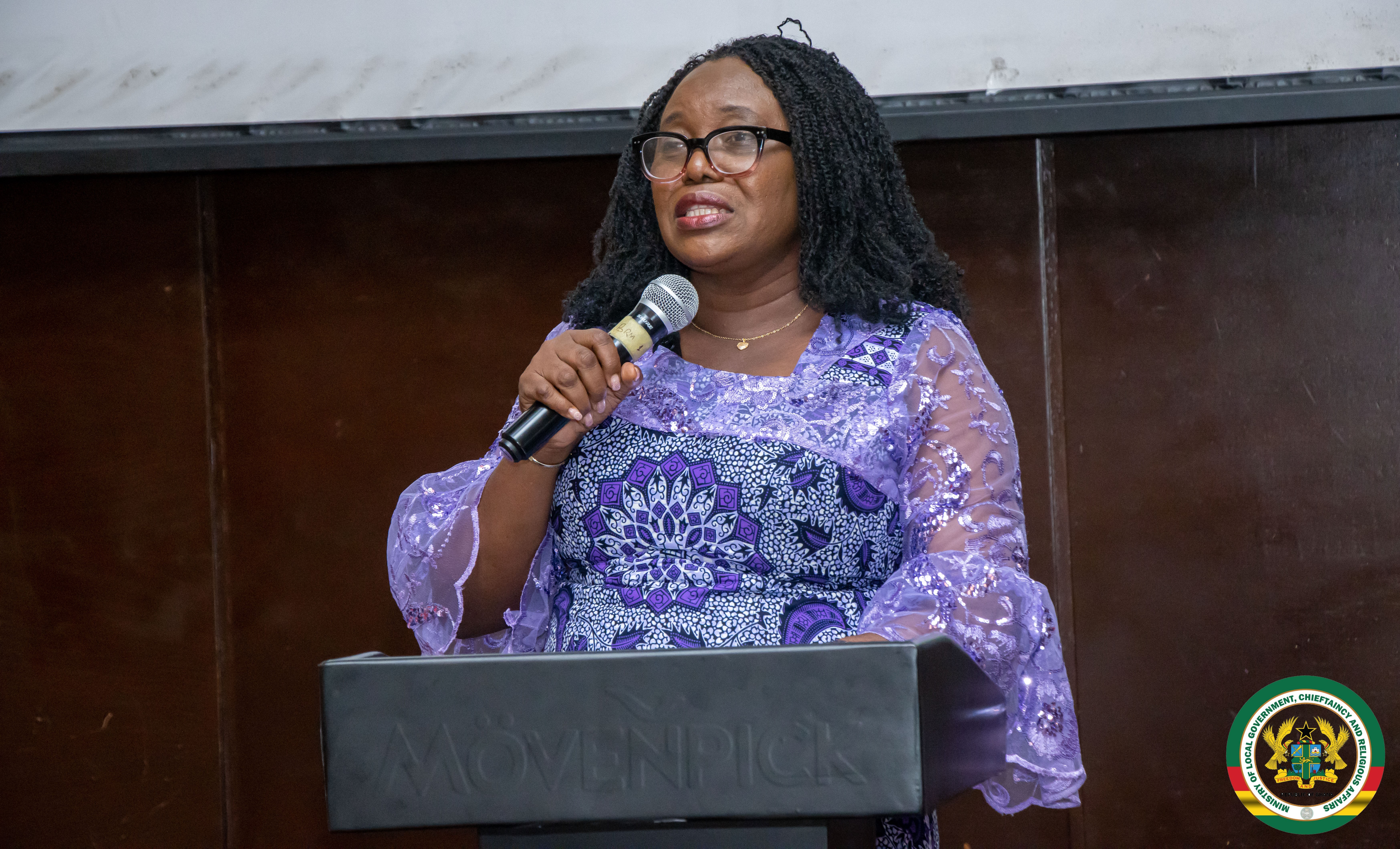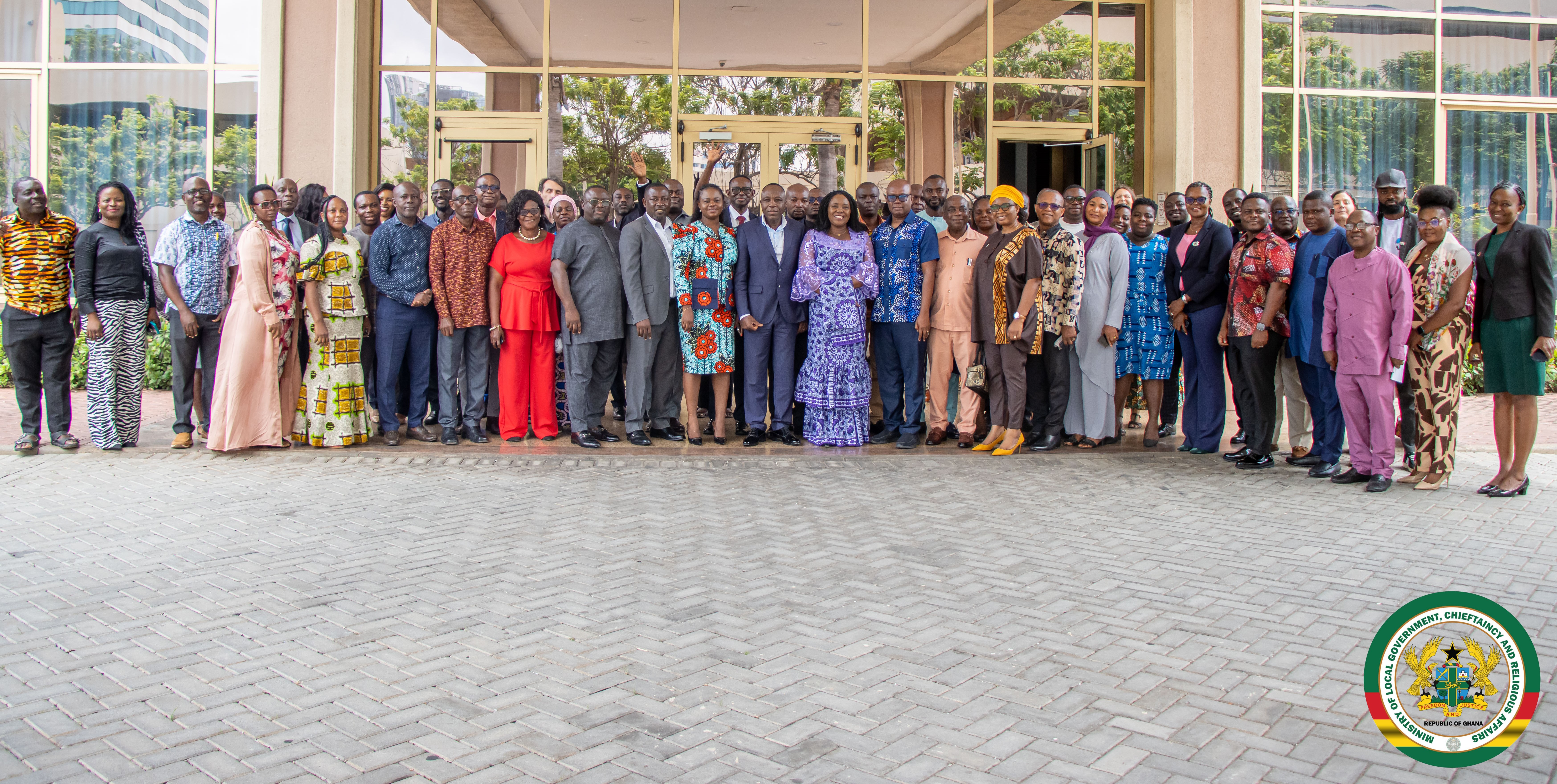The Ministry of Local Government, Chieftaincy and Religious Affairs has held a national validation workshop to finalize the revised Environmental Sanitation Policy (ESP), National Environmental Sanitation Strategy and Action Plan (NESSAP), and Strategic Environmental Sanitation Investment Plan (SESIP). The event took place at the Movenpick Ambassador Hotel in Accra and brought together stakeholders from government agencies, development partners, traditional authorities, civil society organizations, and the private sector.
The Deputy Minister, Hon. Rita Naa Odoley Sowah (MP), who delivered the welcome statement on behalf of the sector Minister, Hon. Ahmed Ibrahim, emphasized the need for a comprehensive, inclusive, and forward-looking sanitation policy framework to respond to Ghana’s growing population and urbanization challenges. She stated that the revised documents reflect new thinking, strategic direction, and stakeholder inputs gathered over a year and a half of consultations across all levels national, regional, and district.
According to the Deputy Minister, the 2021 Population and Housing Census indicates that access to basic sanitation (exclusive household use) remains low at 25.3%, while open defecation reduced only marginally from 19% in 2010 to 17.7% in 2021. Handwashing with soap practices have also declined from 48% in 2017 to 41.5% in 2021.
These statistics, she noted, call for urgent, coordinated action by all stakeholders to reverse the trend.The revised policy aims to address these gaps by providing a clear implementation framework, an investment plan, and actionable strategies to improve sanitation outcomes nationwide. It also aligns with Ghana’s national development agenda and global commitments under the Sustainable Development Goals (SDGs). An assessment by the National Development Planning Commission (NDPC) in 2023 identified sanitation as the most interlinked SDG area in Ghana, influencing progress in education, health, productivity, and environmental sustainability.
The Deputy Minister highlighted that five SDGs have been prioritized by the NDPC for targeted attention, with SDG 6.2, which focuses on ending open defecation and ensuring access to sanitation and hygiene taking center stage. She reiterated that achieving these goals requires a collective effort, adding, “Sanitation is everybody’s responsibility, and the Ministry cannot do it alone.”
Participants at the workshop reviewed the revised policy framework and discussed strategies for effective implementation, including financing, institutional responsibilities, social behavior change, and infrastructure development. The documents are expected to be submitted to Cabinet for approval following the validation exercise.
The Ministry expressed appreciation to all stakeholders including development partners such as the World Bank for their continued support and contributions to the review process. The final policy documents are expected to serve as a guiding framework for sustainable sanitation service delivery and environmental management across Ghana.
Source: Stephanie Edem Klutsey
(Public Relations Unit MLGCRA)


